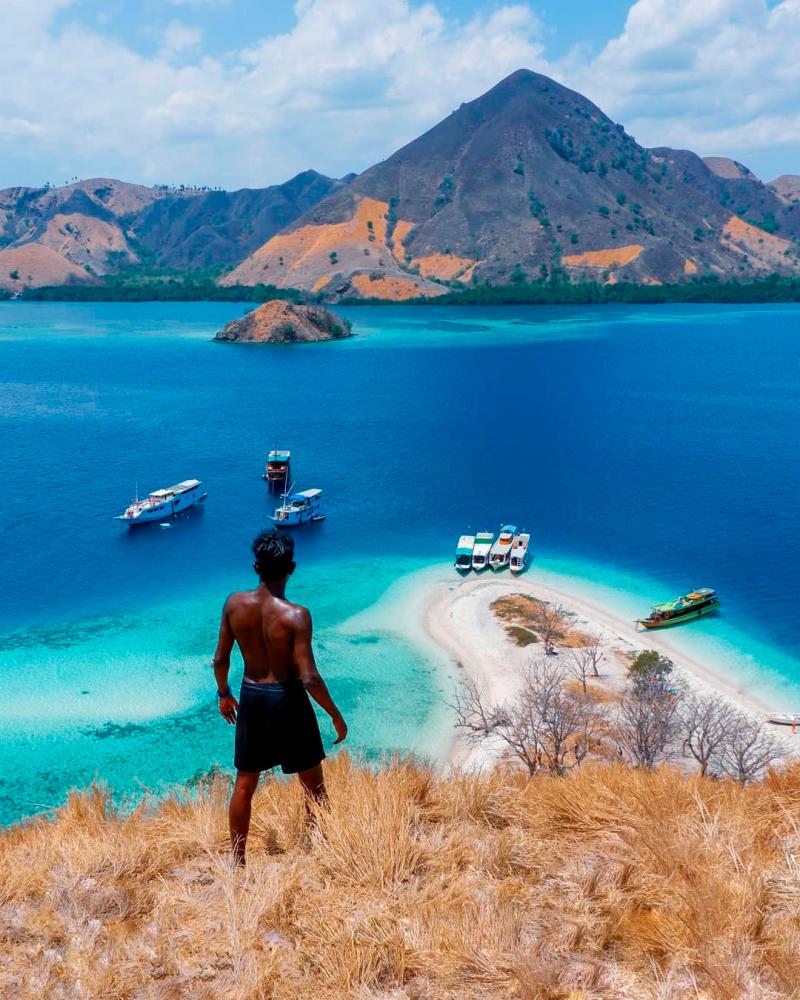IT’S clear that Kovin Sivanasvaran is an adrenaline junkie who finds exhilaration and joy through his many adventures in the wilderness. His Instagram acount (@kovzzz) can attest to that, as it is filled with breathtaking scenery and vivid landscapes from the mountain tops to the deep ocean.
Over the years, the avid hiker has learned the harsh rules of the jungle on his hikes, either solo or with the thrill-seekers from the hiking group-turned-NGO he founded in 2017, known as Glimpse of Malaysia.
The 23-year-old geology graduate’s love for the great outdoors led him to make hiking more accessible to the public. He began organising hiking trips through muddy trails and rocky terrain, while exploring the hidden treasures.
Over the years, Kovin has learned the harsh rules of the jungle on his solitary hikes, but it has also led him to discover hidden gems in the most remote places.
How did Glimpse of Malaysia come about?
“Rather than going to the mall, I turned to hiking as a way to escape the boredom at home. That’s how Glimpse of Malaysia started initially – as a hiking group, but over the years, it has evolved into an NGO.
“From the same hiking group consisting of really passionate people about the environment, we realised there are always some environmental issues that arise during each hiking trip ... there is always trash being scattered around.
“Then we realised it’s quite hypocritical if we call ourselves nature lovers, if we go on hikes exploring Mother Nature but don’t take action.
“So we started off cleaning up hiking trails and now we’ve progressed to cleaning up beaches as well, through a passion project we called Global Cleanup.”
How is the collected waste disposed of or taken care of?
“The amount of trash we’ve collected from one beach go up to a few hundred kilogrammes. However, no matter how much trash we collect, [it] would never stop the problem.
“But what we can do is to recycle as much as possible, segregating fabrics, bottle caps, plastic bottles and the different grades of plastic. Eventually, we would love to collaborate with companies that are able to recognise the value in trash. We’re giving a second life to [it], otherwise, it might have ended up in the landfill.
“For example, the Ecobricks movement uses plastic bottles which are densely filled with clean trash to create reusable building blocks. And Precious Plastic Project shreds plastic and convert them into tiles, jewelleries and modular items in an environmentally-friendly way.”
What’s your concept of zero waste?
“When people say zero waste, I think it may appear too extreme, as if it’s a radical lifestyle. A better way to describe it is minimal waste, to essentially reduce waste.
“Often times I’ve heard people say that ‘it’s only one straw, how can one straw actually make a big difference when you’re using a plastic cup to go along with it?’.
“To me, it has to start somewhere. When I started adopting the zero waste lifestyle, I was still using plastic but not as much as a person who is not aware or conscious of it.
“The amount of waste consumption in my house is evidently lesser compared to a year ago, so I’d say it really is a slow journey with a few learning curves.
“It helps when you mix with groups of people with the same mindset, where everyone is aware and from there you exchange ideas and start conversations about conservation.
“I did a five-day road trip to Thailand with a group of Glimpse of Malaysia ambassadors, with the idea of producing as little waste as possible. The trip was an eye-opener, we managed to reduce so much waste, every single effort counts.’









